- Details
- Category: Senator Scott Bennett News
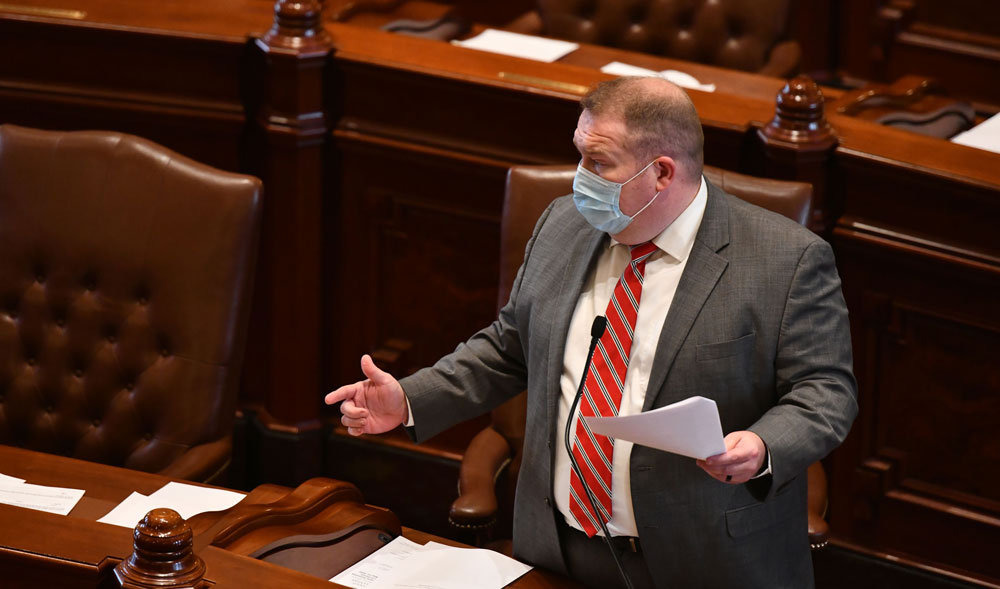 SPRINGFIELD – As Illinois continues to address the COVID-19 pandemic, State Senator Scott Bennett (D-Champaign) hopes struggling families and local businesses will see relief under a state budget that sustains education funding at all levels and makes important investments in communities and programs to help begin to repair the economy.
SPRINGFIELD – As Illinois continues to address the COVID-19 pandemic, State Senator Scott Bennett (D-Champaign) hopes struggling families and local businesses will see relief under a state budget that sustains education funding at all levels and makes important investments in communities and programs to help begin to repair the economy.
To protect the public during this health crisis, this budget provides an additional $600 million to the Illinois Department of Public Health – in part thanks to the federal CARES Act – and fully funds other vital state agencies that are helping protect residents during this emergency. In addition, it provides an additional $400 million for local health departments.
“This budget represents stability in a time of uncertainty,” Bennett said. “We cannot combat the COVID-19 pandemic without investing in our public health departments, so these investments are critical as our health departments are our fighting force against this virus.”
To help communities recover from COVID-19, the budget also provides $200 million to help businesses in downstate communities. Nearly $80 million is set aside to help people with rent and mortgage assistance and nearly $60 million in additional funding to the Department of Employment Security to help address the challenges with the unemployment system.
“During this crisis, we have seen record increases in the number of people applying for unemployment, and it’s vital that IDES has the resources to aid residents who are struggling through this pandemic,” Bennett said. “This added funding is crucial to protect Illinoisans displaced by the pandemic.”
To ensure students do not fall behind, this budget also maintains the state’s commitment to fully fund P-12 education and represents level funding for higher education.
The approved budget is for Fiscal Year 2021, which begins July 1.
- Details
- Category: Senator Cristina Castro News
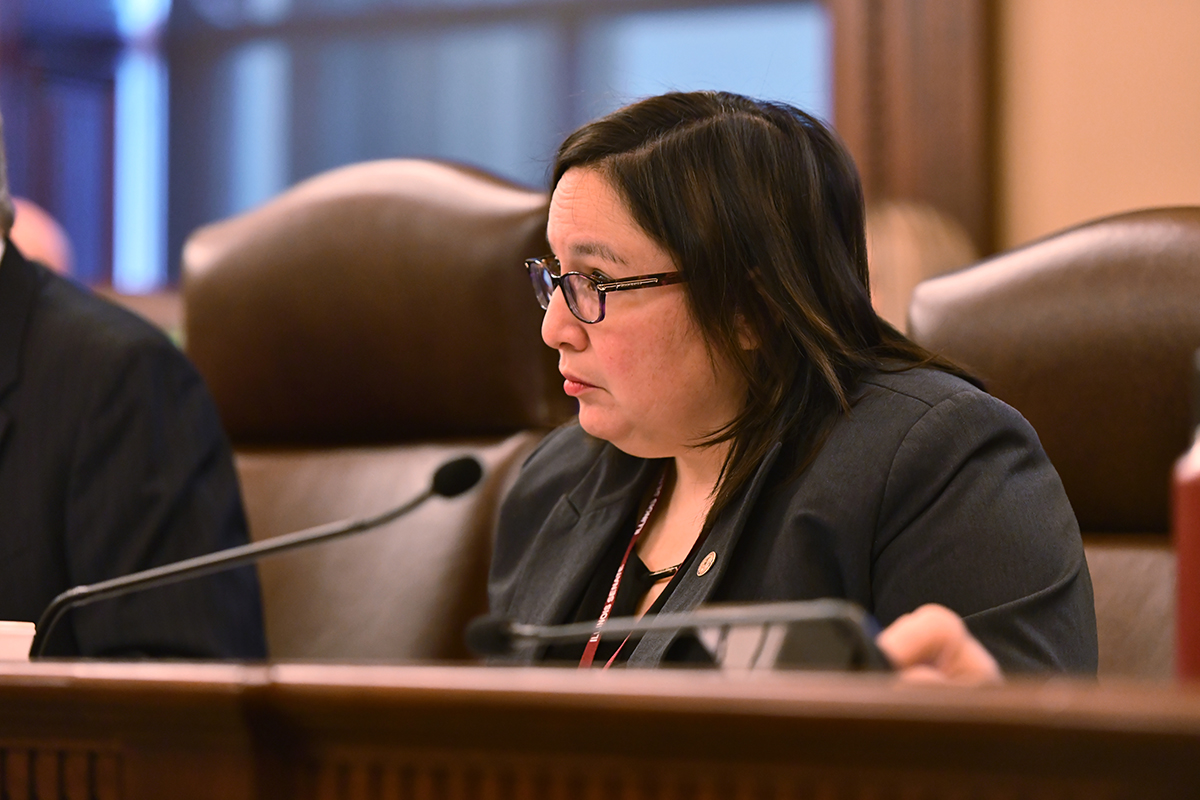 ELGIN – After Gov. JB Pritkzer signed the state budget for the next fiscal year, State Senator Cristina Castro (D-Elgin), who supported the budget proposals during the brief May session, released the following statement:
ELGIN – After Gov. JB Pritkzer signed the state budget for the next fiscal year, State Senator Cristina Castro (D-Elgin), who supported the budget proposals during the brief May session, released the following statement:
“The budget is a realistic response to the current fiscal situation the COVID-19 pandemic has presented us with. It contains relief for our local small businesses, funding to provide PPE to our community’s hard working medical professionals, rent and mortgage assistance for families hit the hardest by the crisis, and support for immigrant and underserved communities who have been disproportionately affected by the coronavirus.”
- Details
- Category: Senator Melinda Bush News
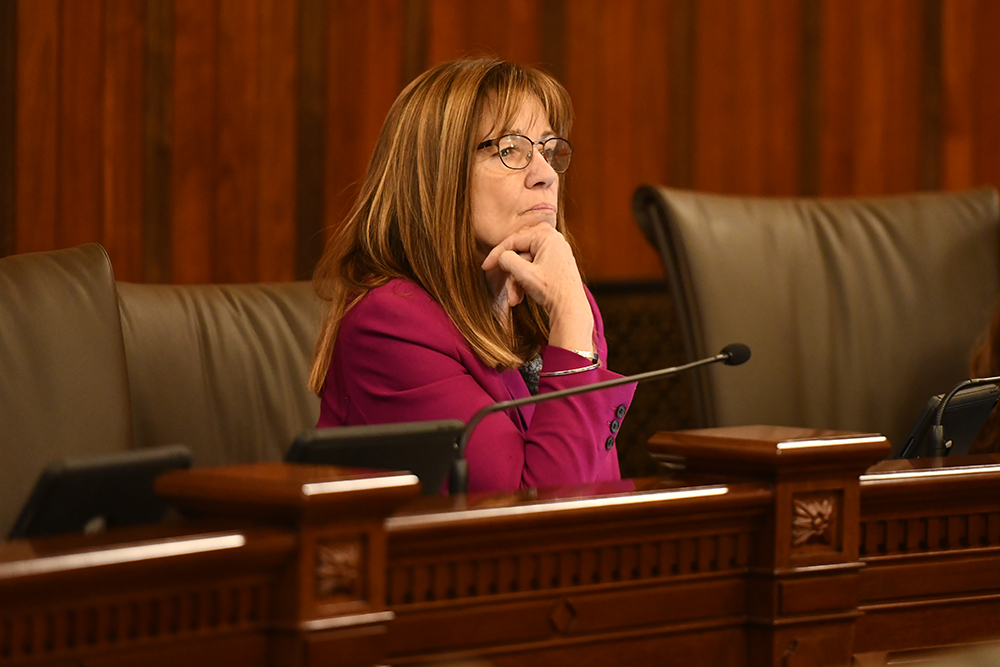 GRAYSLAKE — Gov. JB Pritzker officially signed the new state budget today, and it includes funding to support Illinois seniors, for residents struggling with mental health and substance abuse, and to stabilize the education system, all priorities for State Senator Melinda Bush (D-Grayslake).
GRAYSLAKE — Gov. JB Pritzker officially signed the new state budget today, and it includes funding to support Illinois seniors, for residents struggling with mental health and substance abuse, and to stabilize the education system, all priorities for State Senator Melinda Bush (D-Grayslake).
“We’re facing record unemployment because of the pandemic, and our systems weren’t built to accommodate the number of people needing help all at once,” Bush said. “This budget had to help stabilize our economy and provide support for all struggling Illinoisans. Now was not the time to be cutting back on vital services.”
The budget preserves P-12 education funding, ensuring that the pandemic doesn’t rob students of the opportunity to succeed in the future. It provides $12.6 billion to P-12 education and $7.2 billion specifically for the state’s evidence based funding model. It also increases funding to support older Illinois residents with additional funding for the Senior Meals Program and a nearly $28 million increase to the Community Care Program, which will help people who might otherwise need to go to an assisted living facility stay in their homes.
The budget also contains an additional $30 million for mental health and substance abuse programs affected by COVID-19 and provides the Illinois Department of Employment Security with $60 million in additional funding to address challenges with the unemployment system. The added funding will help IDES increase the number of workers to help aid residents navigate the unemployment system and process claims faster.
“This isn’t anyone’s ideal budget, but it’s the one we needed right now,” Bush said. “It protects students, seniors, and the unemployed.”
The approved budget is for Fiscal Year 2021, which begins July 1.
- Details
- Category: Senator Sara Feigenholtz News
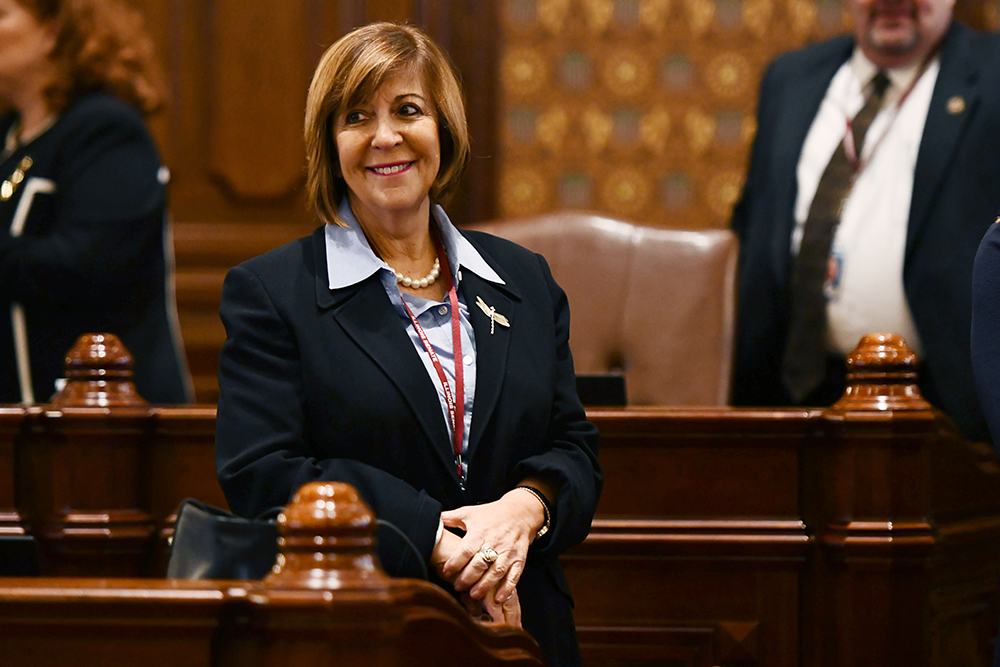 CHICAGO – The new Fiscal Year 2021 state budget signed into law today provides needed funding for the social services and ensures education remains fully funded in Illinois according to State Senator Sara Feigenholtz (D-Chicago).
CHICAGO – The new Fiscal Year 2021 state budget signed into law today provides needed funding for the social services and ensures education remains fully funded in Illinois according to State Senator Sara Feigenholtz (D-Chicago).
“We have a responsibility to protect Illinoisans during this pandemic, and that means preserving the services on which they rely,” Feigenholtz said. “This budget will help guide our state through these challenging times.”
The new state budget includes major investments in social services that provide assistance to Illinoisans who need it most. This includes nearly $180 million in additional funding for the Department of Children and Family Services, which is in severe need of more resources to better care for the state’s children.
The budget also includes $90 million to provide care for people with developmental disabilities, who have often found themselves isolated from friends and family during the pandemic. Funding was also increased by more than $110 million for the Home Services Program, which helps people with disabilities live independently in their own homes.
“Now isn’t the time to be cutting resources that support some of the most vulnerable people in our state,” Feigenholtz said. “I’m proud to have voted for a budget that preserves important care for Illinois residents and ensures no one is left behind during this crisis.”
The state’s new budget also preserves funding for P-12 education for a total investment of $12.6 billion, including $7.2 billion for Illinois’ evidence-based funding model. This ensures that schools will not be receiving less in state funding than they did last year.
“Although it’s still unclear what our schools will look like in the fall, it’s critical that we ensure they have the funds they need to help students succeed, whether in the classroom or learning from home,” Feigenholtz said. “This budget keeps our education funding system on track and puts us in a position to continue increasing funding according to the evidence-based formula next year.”
- Details
- Category: Senator Christopher Belt News
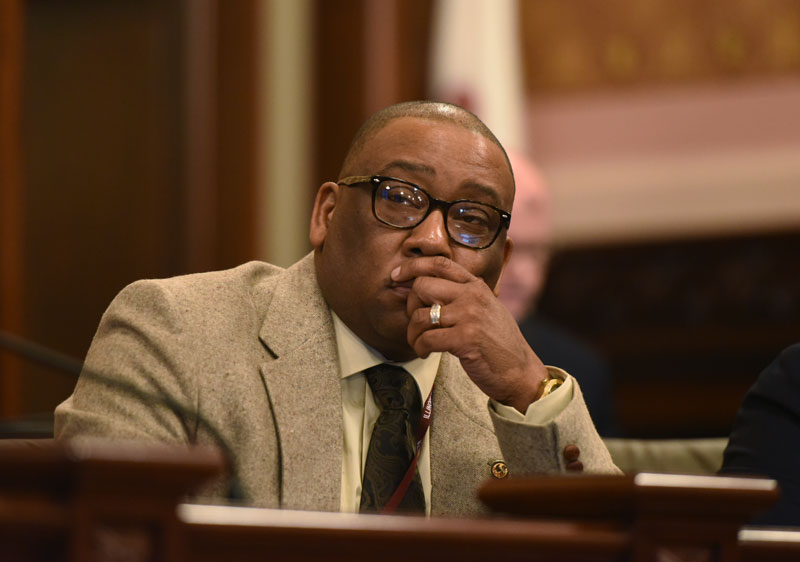 EAST ST. LOUIS – State Senator Christopher Belt (D-Centreville) released the following statement after Gov. JB Pritzker signed a budget that supports the most vulnerable populations and helps people impacted by COVID-19:
EAST ST. LOUIS – State Senator Christopher Belt (D-Centreville) released the following statement after Gov. JB Pritzker signed a budget that supports the most vulnerable populations and helps people impacted by COVID-19:
“We are well aware that Illinois’ financial recovery will not happen overnight, but with the signing of this budget, we made sure the most disadvantaged communities hit by COVID-19 receive the help they deserve. Seniors will receive additional funding for the Senior Meals Program and the Community Care Program, which allows seniors to stay within the confinements of their home instead of moving to assisted living facilities.
“Additionally, more than $200 million is set aside to help businesses effected by COVID-19 in downstate communities. Also, people who have been laid off will receive more help from the Department of Employment Security to help address the challenges with the unemployment system. This is a great first step toward our state’s financial recovery.”
- Details
- Category: Senator Steve Stadelman News
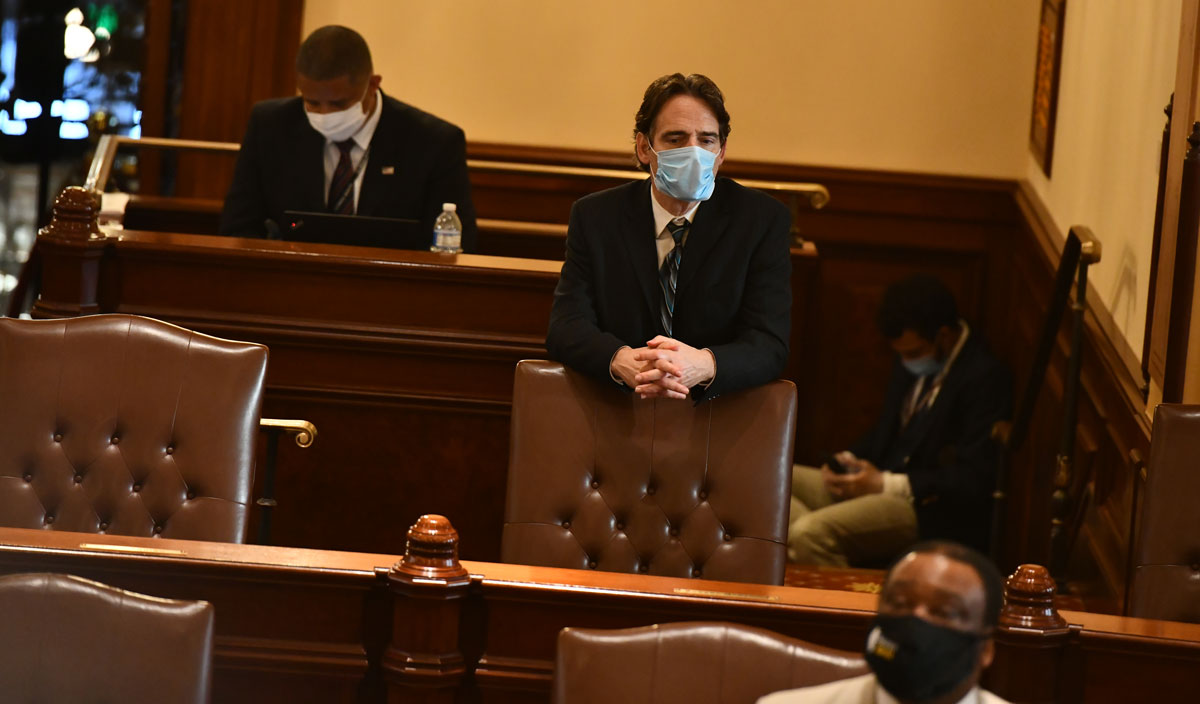 SPRINGFIELD – Following the signing of the Illinois FY 2021 budget, State Senator Steve Stadelman (D-Rockford) applauded the preservation of education and local government funding and efforts to address the challenges presented by COVID-19.
SPRINGFIELD – Following the signing of the Illinois FY 2021 budget, State Senator Steve Stadelman (D-Rockford) applauded the preservation of education and local government funding and efforts to address the challenges presented by COVID-19.
“This budget was passed under unusual circumstances, and that cannot be overstated,” Stadelman said. “We had to not only pass a responsible budget, but also address the many challenges the state and its people have faced due to COVID-19.”
Stadelman highlighted that in this budget the state has committed to holding the line for P-12 and higher education funding.
“As a state, we must continue to maintain steady funding for our schools,” Stadelman said. “Districts have had to make significant adjustments due to COVID-19. It was important that we showed our students and educators that they are a priority.”
The budget fully funds the Local Government Distributive Fund. The fund provides local governments with a share of the state’s income tax revenue and will help them make up for budget shortfalls caused by the COVID-19 pandemic.
“Our cities and small towns depend on us to ensure that they have enough funds to serve their residents,” Stadelman said. “Making sure that cities like Rockford receive the funds they need was a top priority for me.”
Despite financial challenges, the budget maintains services for people in need and assists small businesses hit hard by COVID-19. It also includes federal relief dollars for health care and frontline workers.
“This is a budget to help us get through the pandemic,” Stadelman said. “It certainly isn't perfect, but it provides the state with stability until there are better days to come.”
The law is effective July 1, 2020.
- Details
- Category: Senator Iris Y. Martinez News
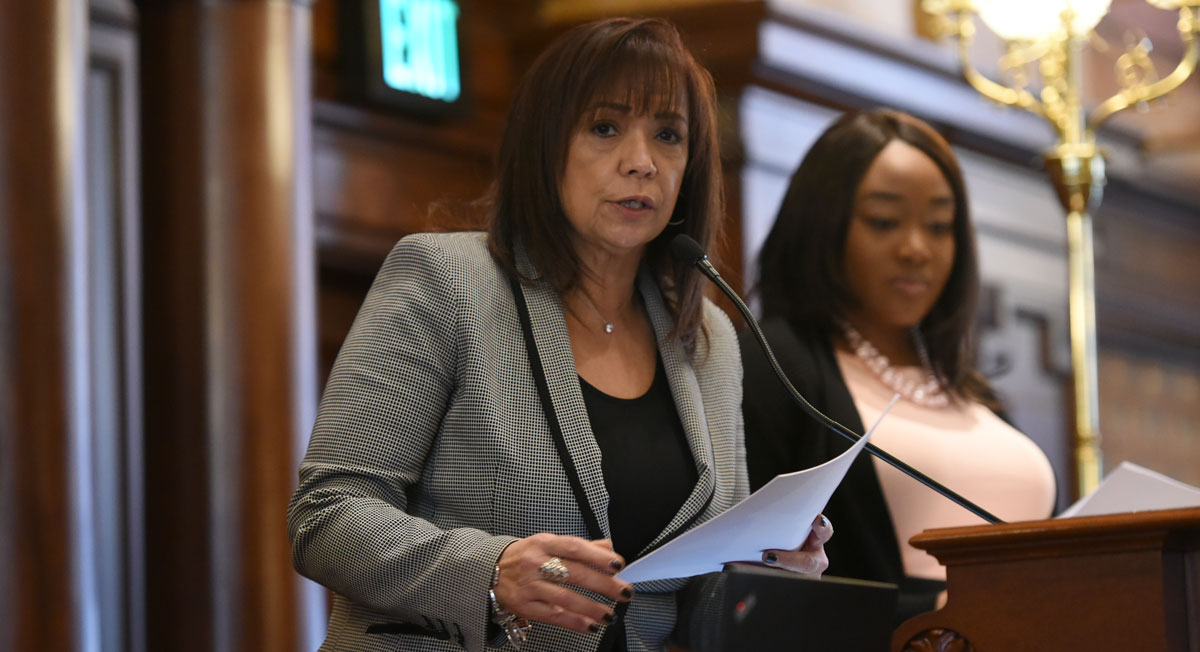 CHICAGO – In recognition of the vast economic devastation the COVID-19 outbreak continues to have on underserved communities, Assistant Majority Leader Iris Y. Martinez (D-Chicago) is relieved by the investments made for students, business owners and seniors in next year’s budget, which the governor signed into law Wednesday.
CHICAGO – In recognition of the vast economic devastation the COVID-19 outbreak continues to have on underserved communities, Assistant Majority Leader Iris Y. Martinez (D-Chicago) is relieved by the investments made for students, business owners and seniors in next year’s budget, which the governor signed into law Wednesday.
“Because of our state’s current fiscal responsibilities, this budget recognizes Illinois’ commitment to funding essential services for students, employees and seniors,” Martinez said. “By providing vital resources, the state is supporting our residents who need the most help in response to the pandemic.”
The FY 21 budget:
Continues to fulfill the state’s commitment to fully fund P-12 and higher education, with an additional $12.7 million going to the Illinois State Board of Education,
Appropriates over $600 million in funding for businesses impacted by COVID-19, with grants and other resources specifically for daycare providers and underserved communities,
Provides an additional $201.7 million to the Illinois Department on Aging and $28 million in new money to the Community Care Program, which supports seniors who live independently in their homes, and
Allocated an additional $32 million in funding for services to immigrant welcoming centers to help recent immigrants get the COVID-19-related help they need.
Another priority of the Illinois Latino Legislative Caucus was passed in the FY 21 budget, which included expanding Medicaid eligibility to low-income undocumented people over 65 years old.
“Expanding Medicaid coverage to undocumented seniors is an additional resource to allow them to prioritize their health and security — not just for themselves and their families, but from financial devastation in the midst of the COVID-19 pandemic,” Martinez said. “Once testing positive, residents should only be worrying about recovery, not about the financial burden related to medical bills.”
In addition, the budget appropriates nearly $60 million in funding to the Department of Employment Security to address the challenges with the unemployment system, allowing the department to hire more staff for assistance on claims.
The FY 21 budget is effective July 1, 2020.
More Articles …
- Link: Budget ensures essential services remain available during pandemic
- Murphy commends support for working families in new state budget
- Senator Fine: New budget acknowledges need for supportive government services during COVID-19 pandemic
- Koehler: State’s budget meets immediate needs without sacrificing vital services
Page 608 of 693













 © 2025 Illinois Senate Democratic Caucus
© 2025 Illinois Senate Democratic Caucus